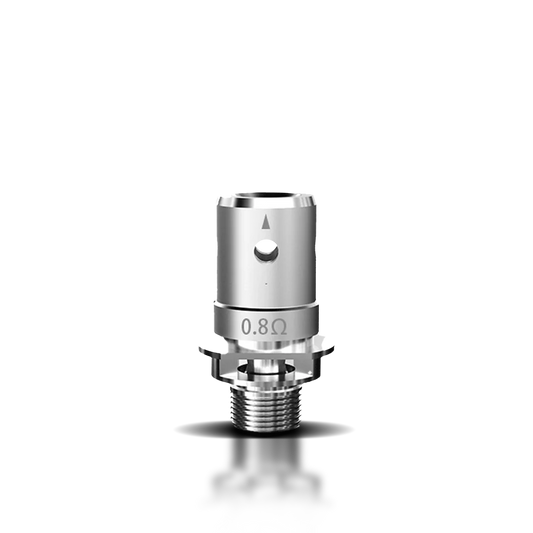
What UK vapers should know about the ‘nicotine cap’ debate
Whether you are a seasoned cloud-chaser or just switching from cigarettes, you have probably noticed the UK’s strict 20 mg/mL nicotine cap. But where did this rule come from, what is the logic behind it, and could it change? Let us cut through the noise and give you the full picture.
What is the nicotine cap?
In the UK and most of Europe, e-liquids are legally limited to a maximum nicotine strength of 20 milligrams per millilitre. That means every bottle of nicotine salts, disposable, or prefilled pod you buy must stay within that threshold. This law came from the EU’s Tobacco Products Directive (TPD), which the UK adopted in full before Brexit.
Why does this law exist?
The nicotine cap was designed to prevent addiction in new users and avoid the marketing of extremely strong products to teens. Lawmakers saw high-strength vapes in unregulated markets and took a precautionary approach. By capping the limit, they believed it would:
- Reduce risk of nicotine overdose in new users
- Make vaping less attractive to non-smokers
- Control product standards and safety
Pros of the nicotine cap
From a public health perspective, the 20 mg/mL limit has clear benefits:
- Limits intense throat hit, which can deter new users from overusing
- Encourages gradual nicotine weaning for those quitting smoking
- Protects younger demographics from high-nic exposure
It also keeps the UK aligned with WHO guidance and gives regulators tighter control over product testing and labelling.
But here is the catch
The nicotine cap has also sparked criticism, especially from those who see it as a one-size-fits-all rule that punishes heavy smokers trying to quit. Many former smokers say 20mg is not enough to beat cravings, especially in the early stages. In countries like the US, where products go up to 50 mg, users report quicker satisfaction and less chain vaping.
This can lead to unintended consequences:
- Users vape more often to get the same effect
- Greater liquid consumption, meaning more cost and waste
- Potential rise in black market high-nic imports
What happens after Brexit?
Since leaving the EU, the UK has technically been free to scrap or revise TPD laws, including the nicotine cap. But so far, it has chosen to keep them. The Department of Health and Social Care has hinted that post-TPD vape policy will be “science-led,” but change has been slow.
In 2025, debates continue. Some campaigners are pushing for a raise in the cap to allow 30 or even 40 mg, especially for smokers struggling to quit. Others want the limit to stay in place to avoid triggering another youth vaping wave.
Alternatives to high-nic vapes
If you find 20 mg is not enough, there are other ways to enhance your satisfaction:
- Try nic salts which hit smoother and faster than freebase
- Use tighter MTL pod systems that deliver stronger throat hit with less vapour
- Add nicotine pouches for a discreet, non-vape top-up
For smokers switching, these combos can ease the transition and avoid overuse.
Could the cap be lifted?
It is possible. Pro-vaping MPs and some public health groups argue that adult smokers need stronger tools to quit. They say the cap is outdated and fails to reflect how different bodies absorb nicotine.
Opponents worry that relaxing the cap would open the floodgates to aggressive marketing, youth appeal, and copycat trends like we have seen in the US. If any change happens, it is likely to be gradual, with tight controls on packaging and access.
What UK vapers need to know
The 20 mg/mL nicotine cap remains the law in 2025. You cannot legally buy stronger e-liquids, even online. Some black market imports exist, but they come with real risks – contamination, battery faults, and lack of ingredient transparency.
Stick with regulated products from trusted shops like Vape Lounge UK where you know exactly what you are getting, and explore alternative setups to improve satisfaction without going beyond the legal limit.
Final thoughts: Do limits protect or restrict?
The nicotine cap debate is not black and white. It protects some, but may restrict others. As the UK redefines its post-Brexit vape laws, expect this issue to return to the spotlight. Stay informed, speak up, and always choose safe, legal products that suit your needs.
Join the discussion
Should the UK lift the cap or keep it? Drop a comment, share your view, and help shape the future of UK vaping.
Looking to get the most out of your vape? Check out nic salts, shortfill liquids, and quitting kits designed for satisfaction and safety.
Visit our stores at 147 Great Ancoats Street, Manchester or 71 Stafford Street, Stoke on Trent. You can also reach us at hello@vapelounge.uk or call 0161 637 6066.






